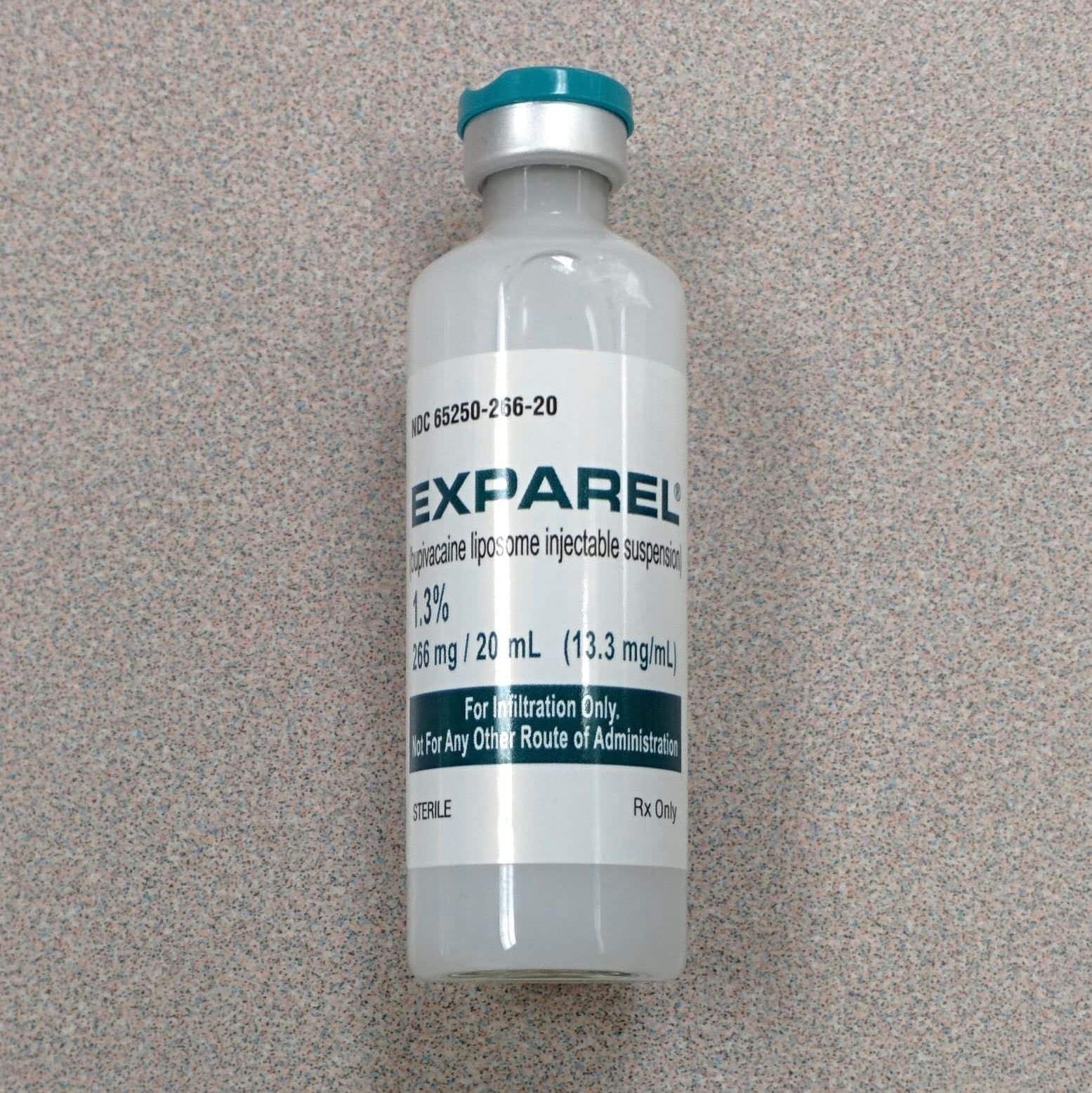Liposomal bupivacaine (Exparel) is a local anesthetic touted for the long duration of its activity. Molecules of bupivacaine are encapsulated within multivesicular liposomes composed of endogenous lipids like cholesterol and phospholipids; these liposomes undergo rearrangement to cause a slow release of bupivacaine over 2-3 days.
Whether it’s administered as local infiltration in the surgical field (studied in hemorrhoidectomy and bunionectomy) or as a peripheral nerve block like transversus abdominus plane (TAP) or interscalene brachial plexus blocks, Exparel (like all local anesthetics) provides a targeted, low-risk form of analgesia with clean side effect profile.
As an anesthesiologist and intensivist, multimodal and preemptive pain control is incredibly important part of my job to mitigate the stress response, improve quality of life and patient satisfaction, promote recovery (ie, early ambulation), and avoid morbidity many patients with prolonged hospitalization experience (ie, delirium). My surgical colleagues often utilize equal amounts of Exparel and 0.25% bupivacaine to have sufficient volume to infiltrate within along the operative incisions.
Although the literature contains countless studies questioning the clinical duration of Exparel compared to traditional local anesthetics, I think the concept of a slow-release agent is fascinating for outpatient procedures and even inpatients who need aggressive pain control. Definitely better than nothing, in my opinion!
Drop me a comment with questions! 🙂






